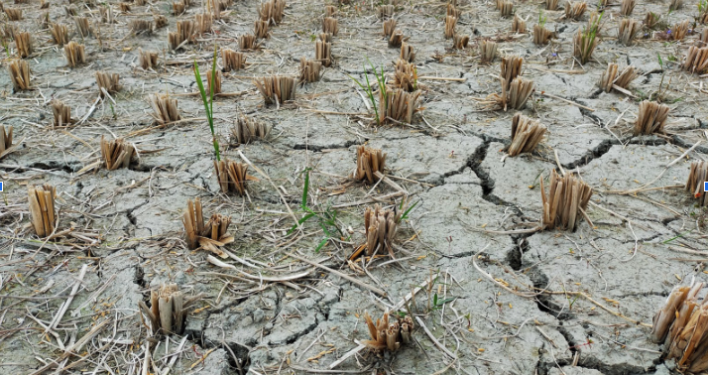દુકાળ
(Gujarati: Dukāḷa; drought)
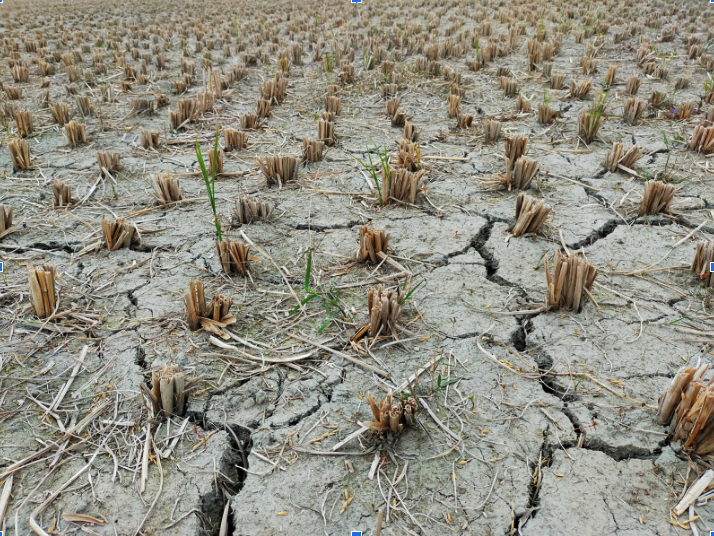
Photo: Md. Hasanuzzaman Himel/Unsplash
The month of August has been furiously extreme. Incessant rainfall in the Himalayas had the rivers flowing in spate. Buildings and bridges washed away in water and dozens of landslides morphed local maps. Hydropower dams opened their floodgates, without warning, flooding villages and towns downstream. We have on our hands much death, destruction and damage (estimated at Rs 10,000 crore in Himachal Pradesh alone).
At the same time, we’ve had a deficit monsoon not witnessed in 122 years. Dry and drought-like conditions persist across a majority of the country, notably in Gujarat, Kerala, Rajasthan and Karnataka. The first and the worst impacted are the farmers. State administrators are responding with extra hours of power or navigating hurdles in declaring droughts and even calling for region-specific drought parameters.
At the Foundation, we’ve had our highs and lows in the month. We participated in a few key gatherings to take forward the collaboratives forming around various focus areas, setting common expectations and a shared vision. Both the ClimateRISE Alliance and the Bharat Agroecology Fund convenings around agroecology arrived at a similar vision and agenda. We are optimistic that this will translate into a push for the sector to work together with the government. At the same time, a few collaborations have hit hiccups that are inevitable for a large complex problem with multiple actors. A shared consensus and vision is tough enough, but a lot of details need figuring out tactically. The urban, conservation and agroecology coalitions are all key, and it’s critical that these become effective rapidly if we have to address the climate crisis with the sense of urgency it deserves.
Rajiv Prakash joined the Foundation as an advisor, and has been helping us see the bigger view, spot gaps, challenges and identify possible pathways. The team also had a two day offsite where we did deep dives into various theses and the chases for the same over the next few months. The deep dives were also into the large open well at the farm we were at, and encompassed a morning walk along a stream. We came back with a lot more clarity around what we are chasing individually and together. Back to execution mode now, and the homework video we came away with!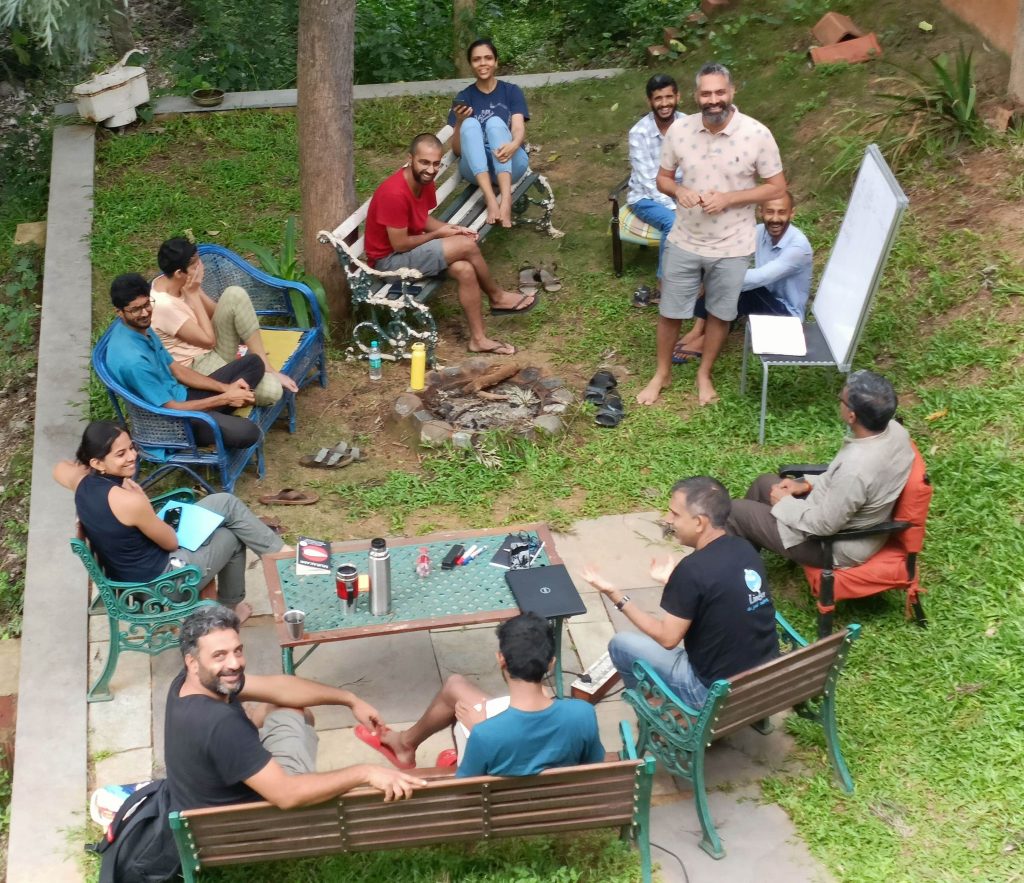
From the Community
Explore World Resources Institute (WRI) India’s interactive map that showcases built-up area, water cover, vegetation cover and groundwater for 10 cities. The map explorer is part of WRI India’s paper on the impacts of urbanisation on natural infrastructure and the related negative environmental impact in these cities. Separately, WRI India will serve as a knowledge partner for the Jalandhar Smart Cities Limited’s (JSCL) Eco City-Region Fellowship. This is an 11–month program on urban government systems. Twelve fellows, chosen under the TULIP program, will be involved in projects for urban blue-green systems, solid waste management, GIS-supported urban planning and community awareness building.
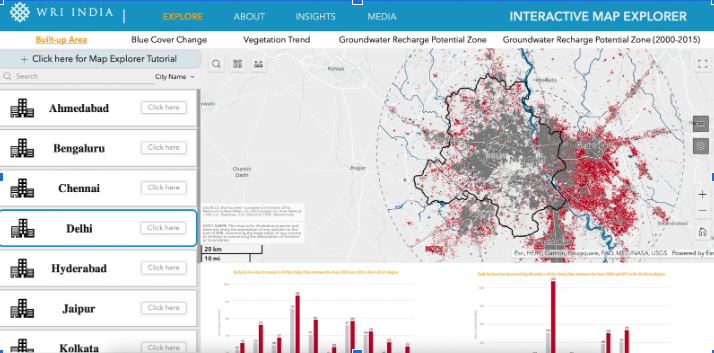
The ClimateRISE Alliance convened its first Strategic Advisory Taskforce (SAT) meeting for insights on emerging trends in India’s climate action discourse. The Alliance has so far hosted three thematic convenings to chalk out priorities for: The one on Sustainable Cities was attended by 13 organisations, who laid out a roadmap that emphasised the need to bridge data gaps, evolve narratives on local pride and cultivate a culture of collaborative learning between cities. The second one on Conservation and Restoration was attended by 15 organisations, most of whom stressed the importance of indigenous community involvement in conservation and the pressing need for data. The third one, on Resilient Agriculture, was attended by 17 organisations, which highlighted the importance of sustainable and inclusive agriculture, and the need to imagine agriculture beyond food and fodder.
Sand is the second most extracted natural resource on Earth. Veditum launched India Sand Watch, an open-data platform enabling collection, annotation and archiving of data related to sand mining in the country. Watch the launch and walk-through or sign up for an introductory session.
The Locavore conducted a workshop during MS Swaminathan Research Foundation’s international conference on Mighty Millets for Food, Nutrition & Health Security in Chennai. Through the #TLworkshop on ‘Cultivating Creativity: Uniting Stakeholders to Innovate Solutions for Millet Challenges’, the team engaged with individuals from across India’s food system, discovering their professional and personal journeys with millets. They also set up a Challenge Mapping Station and were part of a panel on bringing millets to consumers. The Locavore is also kicking-off the second phase of the Millet Revival Project, which will explore the ecological and climate impact of millets in India as well as nudge behavioural and perception change among consumers while advocating for eating practices that resonate with both personal health and planetary wellness. They are looking to add to their eclectic team. Details here.
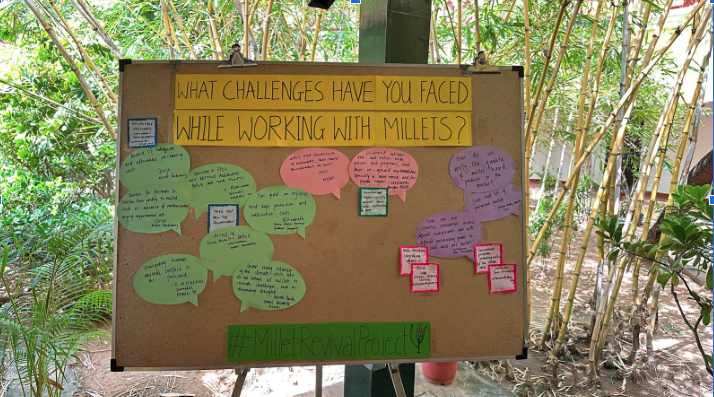
Stat of the month
30,000,000
(30million/3crore) the number of observations made by birdwatchers that form the basis of the State of India’s Birds 2023 report. The report is a phenomenal effort put by 13 organisations (whoever said 13 was an unlucky number!) distilling the observations made by ordinary people, bird enthusiasts and avid bird watchers into the online birding notebook, eBird. You can get visual summaries of the report in 13 languages, look at species-specific information at the state and national level and explore the Monitoring Your Neighbourhood Avifauna or MYNA tool to draw a polygon on a map and generate a report of the birds reported within your area! Three cheers for citizen science and public platforms!
Noticeboard
Indigenous people: Days after 9th August was observed as the International Day of the World’s Indigenous People, 114 families of the Hakki Pikki and the Iruliga communities of Banngerhatta, near Bangalore, Karnataka, each received the title deeds to 2-acres of land after a 6-decade struggle. The days of struggle continue for their counterparts from the Madia community in Maharashtra, who are protesting against mining on their lands. Do check out Rahul Ranjan’s thread on books and other resources about and by Adivasi people in India.
Know folks who are champions for rivers? The India Rivers Forum is inviting nominations for two awards – the Bhagirath Prayas Samman Award for sustained efforts in protecting and conserving rivers and for the Shri Anupam Mishra Memorial Medal, which recognises journalists for exceptional work on various aspects of rivers leading to changes in behaviour, public discourse, law and policy. The last date for nominations is 30th September 2023. Details here.
Still Unprepared: India’s big banks move slowly in the face of climate crisis: Climate Risk Horizon’s August 2023 assessment of 34 major banks in the country found that the banks’ progress in the face of the climate crisis has been too slow, and that on some key parameters, there has been almost no meaningful change since the previous assessment in 2021-22. Related news report here.
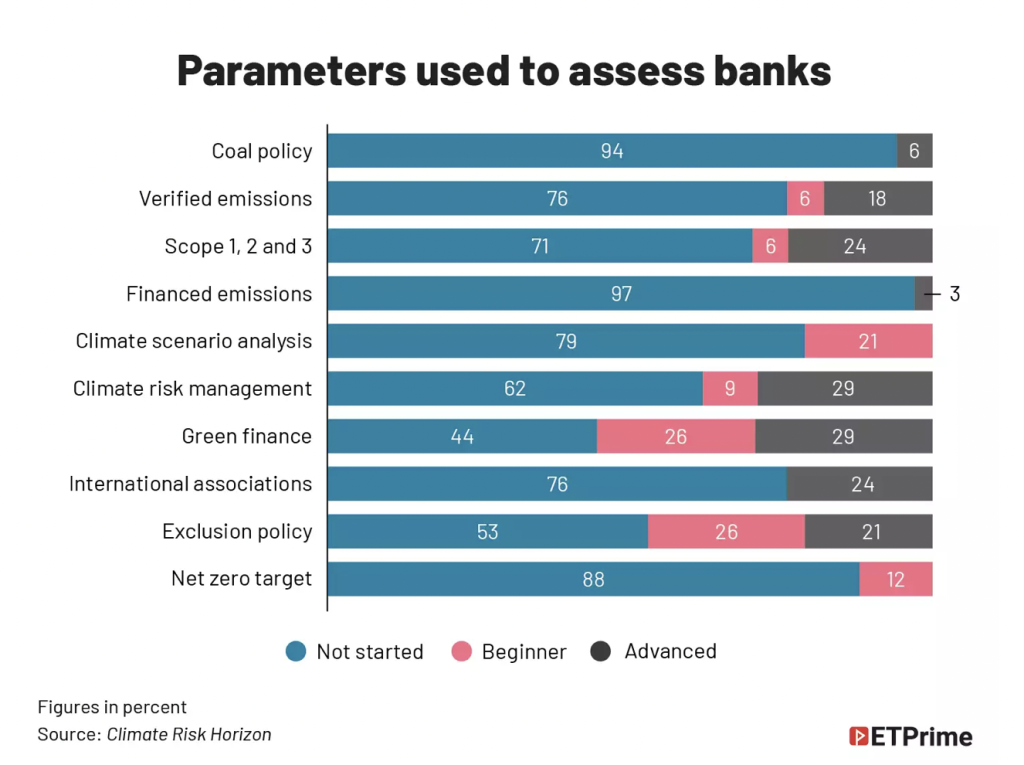
Did you know that using energy-efficient ceiling fans can help reduce emissions? So why do only 3% of Indian households use these fans? Find out in Mongabay India’s two-part series – here and here.
Jobs: WELL Labs is looking for a programme managing partner and a knowledge management fellow. The India Climate Collaborative is recruiting a senior communications manager.
Fishy Waters is a fortnightly newsletter by independent journalist Supriya Vohra about all things related to coasts, coastal and marine ecosystems, communities and livelihoods. The editions so far have examined the cost of cyclones, port development, unabated aquaculture and the country’s shrimp policy.
Also listen to the Riverside Tales podcast which recounts the real life anecdotes and tales of the wild as experienced by the members of the Wildlife Association of South India.
Field trials for India’s first hydrogen-powered bus for roadworthiness tests and other procedures are ongoing in Leh. The hydrogen-powered buses are an initiative by the National Thermal Power Corporation (NTPC). The fuel cell buses are designed for operation in sub-zero temperatures in a rarefied atmosphere, which is typical for high altitude locations.
Human-elephant conflicts & women’s health: When entire fields and homes are flattened by elephant movement, it is the women, as primary caregivers, who deal with acute anxiety and deprivation, writes journalist Aatreyee Dhar. In none of her interviews “did the women blame the elephants for their condition. They seemed resigned to their fate, describing their tragedies as “God’s will”. At times, they blamed humans for destroying forests and forcing the pachyderms out of their habitats in search of food.”
The OASIS Summit seeks to bring together civil society and technology organisations to learn, network and demonstrate FOSS-for-social-good efforts i.e. technology especially curated for social development use cases. Register here for the summit, which will be held at the Bangalore International Centre on 14th September.
Millet photo contest: Send in your entry for the Food and Agriculture Organisation’s International Year of Millets Photo Contest. The first prize winner will be invited to the official closing ceremony of the International Year of Millets in 2024. Submit your entry here.
Pledge: Material gifts have an environmental cost. Consider giving to a cause.
Parting shot
I Want a Better Catastrophe
Author and humourist Andrew Body’s invitation is a wonderful flowchart to navigate the “impossible news” of climate breakdown.
Until next time, may your roads be auspicious
śubhāste panthānaḥ santu
Team Rainmatter Foundation

